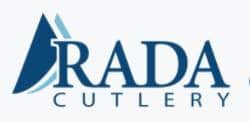By Steven Elkins
As inflation rates continue to rise, churches and other ministries could be underinsured if they don’t keep up with the changing replacement costs of their buildings. Property valuation is one of the most critical but often overlooked aspects of insuring a ministry.
To make sure your ministry is adequately insured, you need to have a clear understanding of how building property limits are determined, how they’re affected by inflation, and what your church can do to be prepared.
Here’s what you need to know.
Not All Property Valuations Are Equal
Regarding placing a value on property, insurance companies use two standard property valuation methods that determine how much will be paid in the event of a loss:
- Actual Cash Value: Actual cash value is what your property is worth minus depreciation. It accounts for age and wear and tear when replacing the damaged property.
- Replacement Cost: Replacement cost, on the other hand, is the actual cost to rebuild your property from scratch. This number can fluctuate greatly depending on the current state of the economy and construction market.
If you intend to replace damaged property after a loss, your ministry should insure your buildings and personal property for their current replacement cost value.
If you have older buildings, you will not restore to their same condition after a loss, you may insure the building for its actual cash value to reduce your property insurance premium.
How Inflation Affects Replacement Cost
Inflation is defined as the rate at which the prices of goods and services rise over time. As inflation goes up, the cost of building materials and labor also increases. Generally, this means that it will cost more to rebuild your property today than it would have a few years ago.
For example, let’s say that you insure your church for $1 million at a time when the replacement cost is also $1 million. If inflation rates rise by 2% over the next year, the replacement cost of your property will increase to $1,020,000. However, your insurance policy will still have a limit of $1 million, leaving you with a potential coverage gap of $20,000.
As of July 2022, the inflation rate is about 9.06%, which means that this scenario is not as far-fetched as it might seem.
The cost of construction materials is just one factor that can affect your replacement cost. Availability of labor can have a huge impact on the timeline of a construction project.
If there’s a shortage of workers, it could take longer to rebuild your property, resulting in added expenses to your ministry. During construction, you’re most likely paying for rental space and equipment, which also has a limit on how much your insurance company will pay.
Determining Replacement Cost
So, how do you know what the replacement cost of your property is? The best way to get an accurate estimate is to hire a professional appraiser. They will consider the current cost of materials and labor in your area, as well as the size and type of your building, to come up with a realistic estimate.
Another way to estimate replacement cost is to use a cost estimator like the one offered by your insurance company. This method is less accurate but can still give you a good idea of how much it would cost to rebuild your property in the event of a loss.
Once you have an estimate of your property’s replacement cost, you can compare it to your insurance policy’s limit to see if you’re properly covered. If not, you may need to increase your coverage to make sure you’re protected in the event of a total loss.
Steps to Reviewing Your Property Insurance
- This might sound obvious, but review your insurance documents for accuracy. Make sure that the address, type of property, and occupancy are all correct. If you’ve made any changes to your property since you last updated your policy, be sure to let your insurance company know.
- For each building, confirm that the property valuation is set to replacement cost, not actual cash value (ACV). ACV usually results in a much lower total insured value, meaning money out of pocket for the church in the event of a loss.
- Next, take a close look at your policy’s coverage limits. Make sure that they match the replacement cost estimate or appraisal for your property. If they don’t, you may need to increase your coverage. Also, take a closer look at the ministry’s personal property limit. Complete an inventory and share the list with your insurance agent. They can help you decide if your current coverage limits are adequate.
- Ask your insurance agent about options available to protect against inflation. For example, Brotherhood Mutual which insures more than 65,000 churches and related ministries around the country, offers Inflation Guard and Broadened Valuation. Inflation Guard will automatically increase your property insurance limits by a certain percentage each year. Broadened Valuation can pay up to 125 percent of your building’s scheduled coverage limit after a loss.
- Finally, review your policy’s deductible. In the event of a claim, you’ll be responsible for paying this amount out of pocket before your insurer steps in. A higher deductible can help lower your premium, but it also means more financial risk for you in the event of a loss.
Inflation can greatly impact your church or ministry in the event of a loss. Remember, a loss is sudden and accidental; it can happen anytime and when you least expect it. A gap in property coverage in today’s financial market could result in a financial burden to your ministry that you can’t recover from.
Spend time with your insurance agent to understand how these factors impact your property insurance and ensure that you’re adequately covered.
Note: This article is intended to serve as general information. Please consult your insurance agent to discuss how this topic may pertain to your unique ministry situation.
Steven Elkins serves as vice president for CTG Insurance, an independent insurance agency specializing in faith-based organizations located in Grand Blanc, Michigan, www.ctgins.com.







